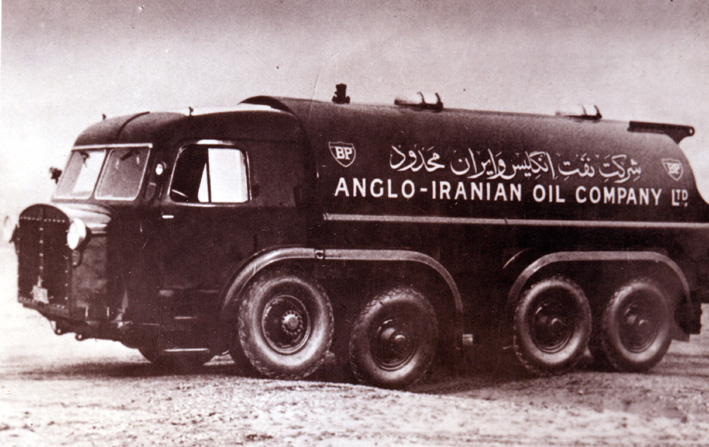IRAN, AND THE ROOT OF THE ANGLO-IRANIAN OIL COMPANY’S DISPUTE. CHALLENGING THE UNITED KINGDOM’S WORLD AUTHORITY. A TURNING POINT. 1945-1951

Real negotiations did not get underway until the autumn of 1948. They were then wide-ranging, with complaints on the Iranian side against almost every aspect of the Company’s commercial and employment policies. The Iranian economy was under considerable pressure. A seven-year plan had been drawn up for the period 1949-59 and royalties were the only conceivable way to finance it. The plan was a long-term programme, providing for heavy expenditure on infrastructure and on social improvements, for example, in education. It was therefore not likely to produce short-term economic gains, but these were just what the Iranian people, and most likely the Majlis, expected from it.²
Two new complaints had emerged on the Iranian side. The first was that Venezuela had negotiated an oil concession agreement giving it a 50:50 shares, in profits, and the Iranians saw no reason why they should not have the same. This was an idea which the British Foreign Secretary, Ernest Bevin, had much earlier put privately to the AIOC. Foreign Secretary Ernest Bevin, who handled the Anglo-Iranian Oil Company’s crisis before Herbert Morrison took office as Foreign Secretary, was emphatic that Britain’s position as a great power must remain. Bevin’s view on this issue was also held by his successor, Herbert Morrison, in even stronger terms. The following extract shows how strong the Labour Government felt about Britain staying a major power:
His Majesty’s Government do not accept the view … that we have ceased to be a Great Power, or contention that we have ceased to play that role. We regard ourselves as one of the Power most vital to the peace of the world and we still have our historic part to play. The very fact that we have fought so hard for liberty, and paid such a price, warrants our retaining that position; and indeed it places a duty upon us to continue to retain it.³
Foreign Secretary Bevin stated firmly and clearly that, ‘for his part he was “not prepared to sacrifice the British Empire”,4on the grounds that ‘if the British Empire fell… it would mean the standard of life in our constituencies would fall rapidly.’ 5 Additionally, it is worth noting, as Bernard Porter has put it,
‘development and welfare was seductive because its effect was to sanction what expedient now, while at the same time seeming to endorse most of what had been done in the past.’6
Converting his conviction into practice with the successful establishment of Labour’s colonial doctrine of trusteeship, the Labour Foreign Secretary, Ernest Bevin, one of the greatest supporters of British imperial power, managed to harmonise Labour’s socialist and anti-colonisation policies with British nationalism and sense of empire. This was done in 1950, in the Sinhalese capital of Colombo, known as the Colombo Plan.
-
-
-
-
- J.MARLOW, The Persian Gulf in the Twentieth Century, (London: The Cresset Press, 1962), Chapter 10.
- Ibid., Chapters 9, 10, 12, 13.
- A. SCHLAIM, P. JONES and K. SAINSBURY, British Foreign Secretaries since 1945, (Newton Abbot: David & Charles, 1977), p. 38.
- M. BARRAT-BROWN, After Imperialism, (London: Heinemann, 1963), p. 294.
- Ibid.
- B. PORTER, The Lion‘s Share, (London: Longman, 1984), p. 314.
-
-
-



